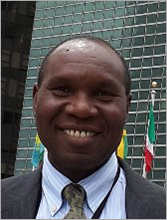The Arab region is gaining ground in low-carbon, sustainable energy investments
In September 2015, the UN General Assembly approved the 2030 Sustainable Development Agenda. The agenda included the 17 Sustainable Development Goals with SDG 7 focusing on energy and SDG 13 on climate change. In December 2015, the world community reached a milestone with passage of the Paris Agreement on Climate Change which entered into force on the 4th of November 2016, a few days before the start of the UNFCCC COP 22 in Marrakech, Morocco. These global achievements have contributed to new momentum in the Arab region to scale-up renewable energy investments.
To analyze and rank countries’ progress on the Arab Renewable Energy Strategy (2013-2030) and SDG7, the Regional Center for Renewable Energy and Energy Efficiency (RCREEE) launched the 2016 edition of its flagship publication, the Arab Future Energy Index (AFEX) report at COP22, with the support of the United Nations Development Programme (UNDP) through its Arab Climate Resilience Initiative (ACRI). The launch was hosted by the Islamic Development Bank Group and involved participation of country representatives from Egypt, Jordan and Morocco, among the top performers in this year’s AFEX rankings
Leading our sustainable energy cooperation in the Arab region, I see AFEX making a valuable contribution to track countries efforts and achievement in implementing SDG 7. Working with our partners in the region, I have observed dramatic change in the way Arab countries have shifted their efforts to implementing low-carbon, sustainable energy investments as a way of addressing critical challenges facing the region and building resilience of development pathways. Many of the governments have announced truly ambitious goals, for instance, Morocco has the region’s most ambitious vision for scaling up renewable energy, with the National Energy Strategy (2012-2020) seeking to install 2,000 MW each of wind, photovoltaic (PV) and concentrated solar power (CSP), with the hope that these technologies will supply 42 percent of the energy mix by 2020. Other countries in region have similar ambitious plans.
AFEX is the first index developed by the region and for the region to monitor and analyze sustainable energy competitiveness across the Arab states.
As a one of its kind tracking tool for sustainable energy in the region, AFEX helps track progress among 20 countries in their implementation of low-carbon, sustainable energy investments. With over 20 indicators and in depth analysis and recommendations, AFEX helps rank countries on regulatory and institutional structures, progress on financial innovations, expanding access to sustainable energy, and ways to achieve local results in line with the Arab Renewable Energy Strategy and affiliated national strategies and plans, including Nationally Determined Contributions (NDCs) under the Paris Agreement.
As we move forward from COP22 and chart the course for implementation of SDG 7 and the NDCs, it is reassuring to see in this year’s AFEX rankings the impressive results starting to be realised in making the shift to a sustainable energy future in the Arab region. But much more needs to done if countries are to achieve their national sustainable energy targets. In most countries, renewable energy can help achieve local development goals, improve energy security, help diversify economies, build resilience of those in fragile countries, expand energy access for refugees and internally displaced persons and reduce poverty in the process. AFEX provides public and private partners with information to help them plan future policies and investments. Indeed, AFEX is helping to create a new dialogue on key questions: how do governance and institutional arrangements affect the transition to sustainable energy? How can new policies help de-risk sustainable energy investments and lead to scaled-up financing? How effective have been energy subsidy reforms in the region in catalyzing a clean energy shift?
AFEX is just one of the many ways UNDP supports regional and national partners in achieving low carbon, sustainable energy pathways. With over $2.8 billion of grants around the world for climate action, UNDPs capacity development initiatives are helping countries put in place new policies to scale-up investment into renewable energy, new institutional capacities to expand the role of renewable energy in achieving SDGs and NDCs, and building resilience of communities through greater access to bottom-up sustainable energy solutions for the poorest and vulnerable in society.
Stephen Gitonga is Sustainable Energy Specialist, UNDP Regional Hub for Arab States.
The views expressed here are solely those of the author in his/her private capacity and do not in any way represent the views of neither the Arab Development Portal nor the United Nations Development Programme.
